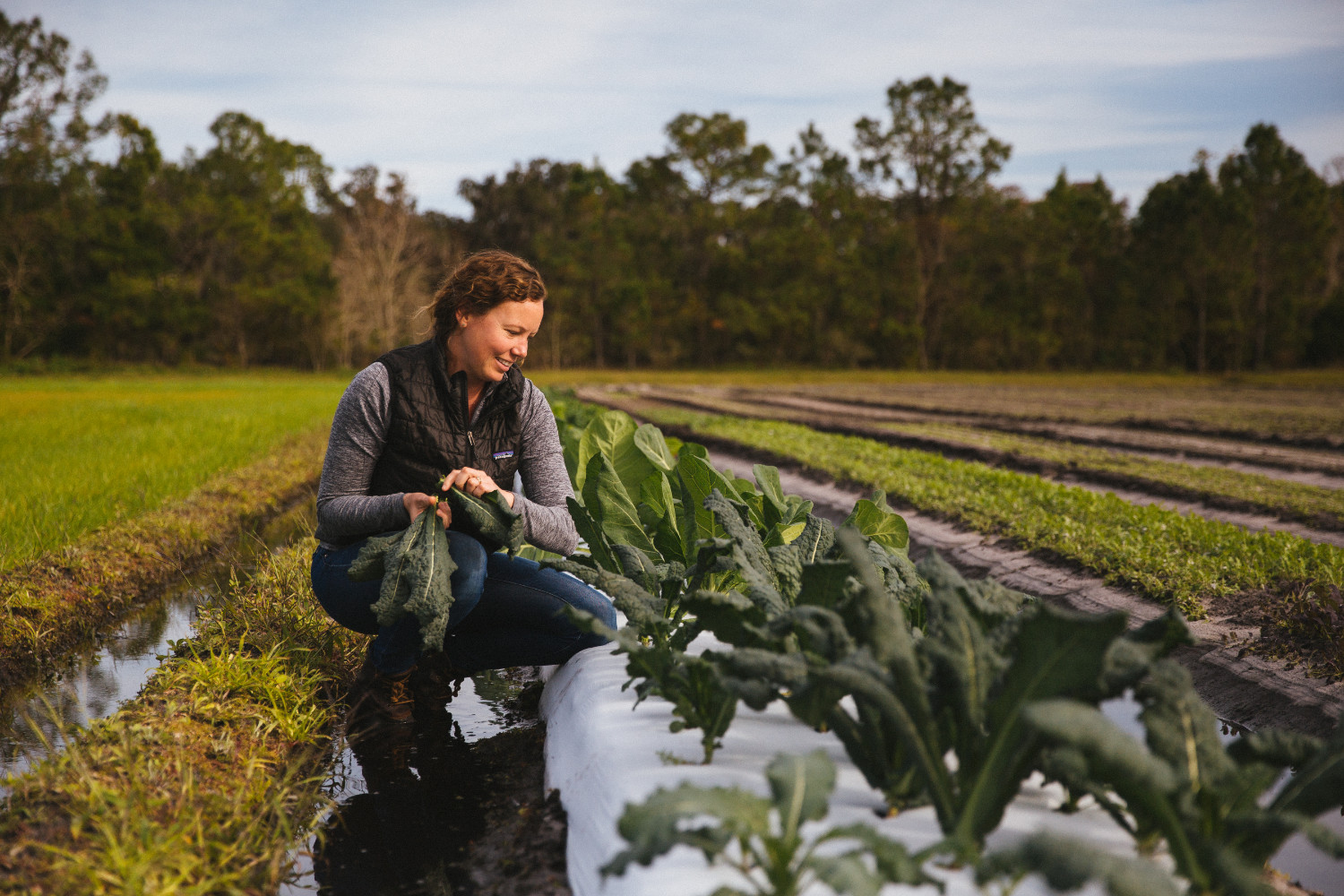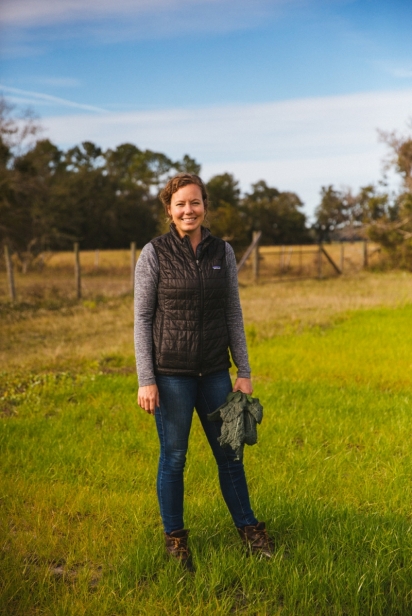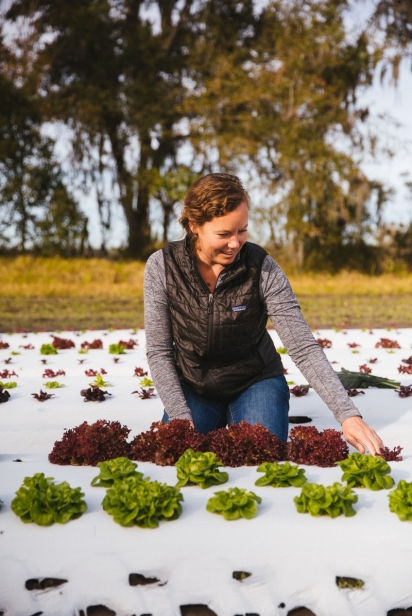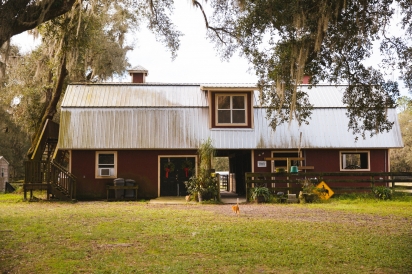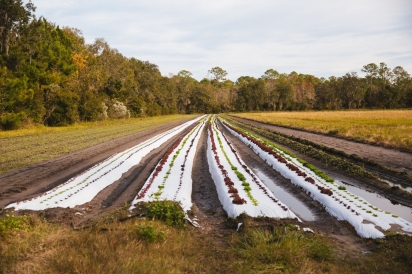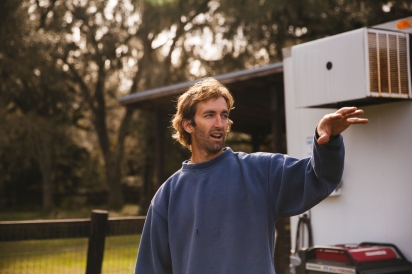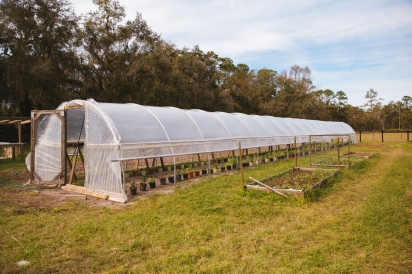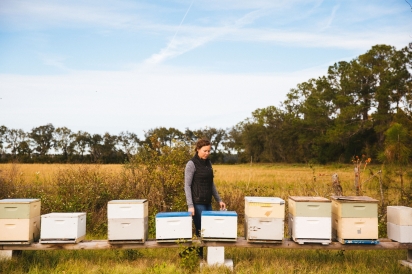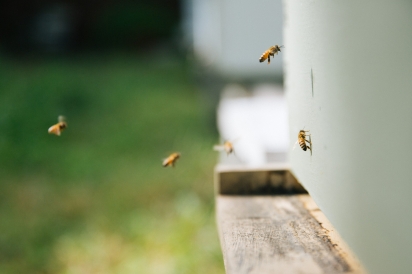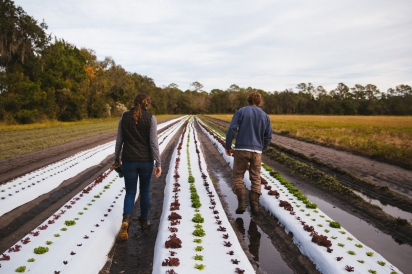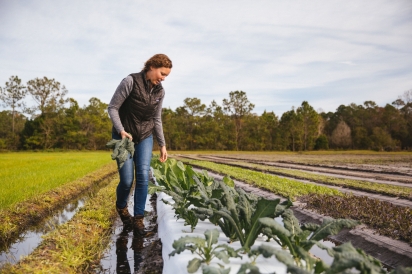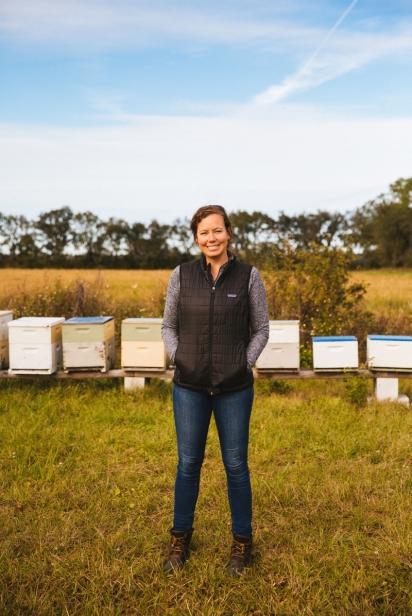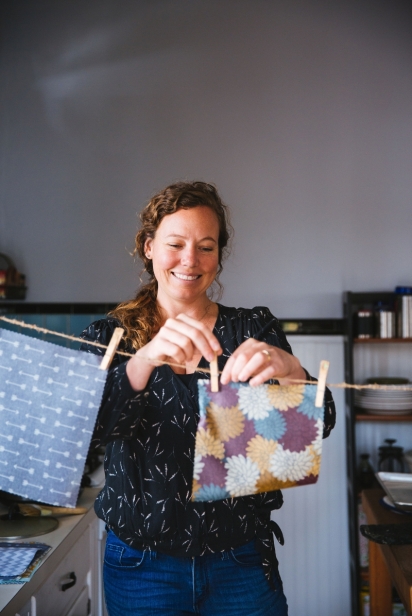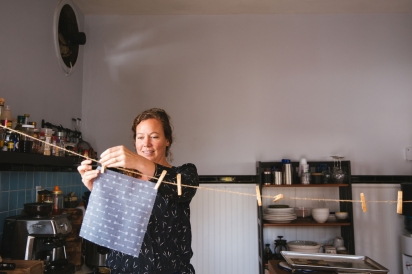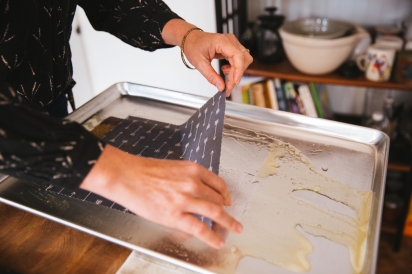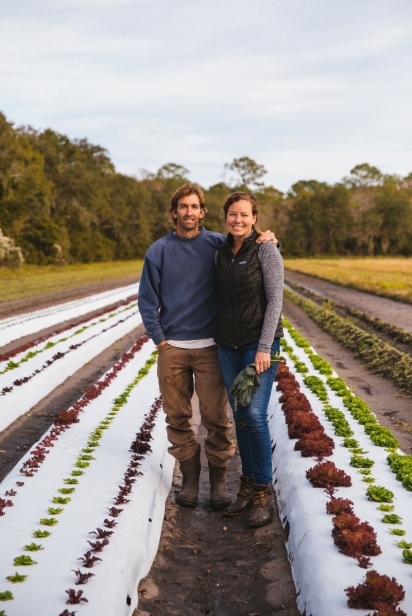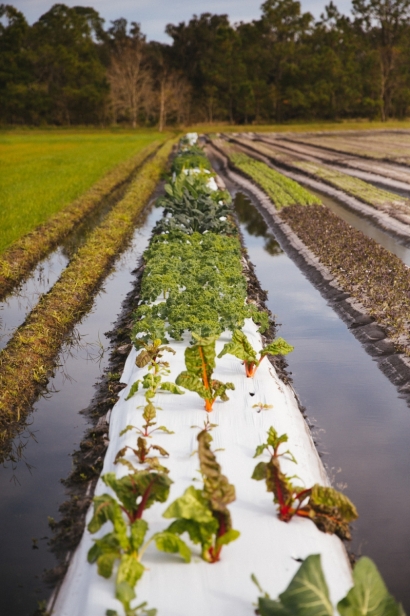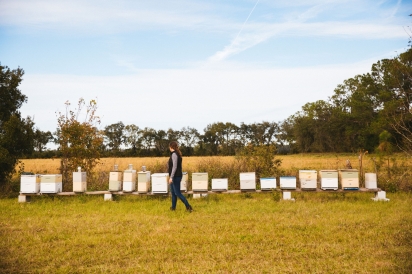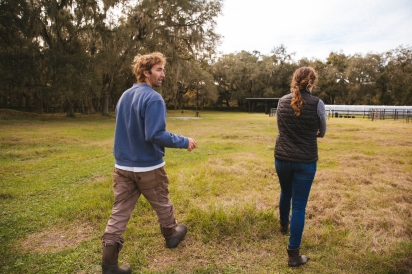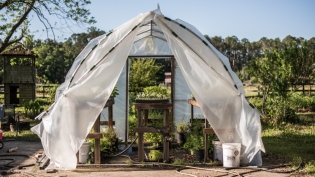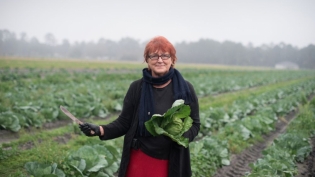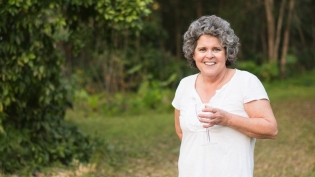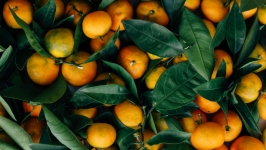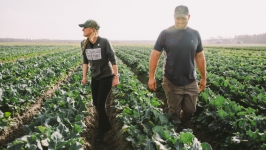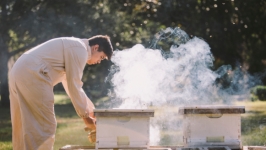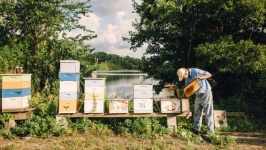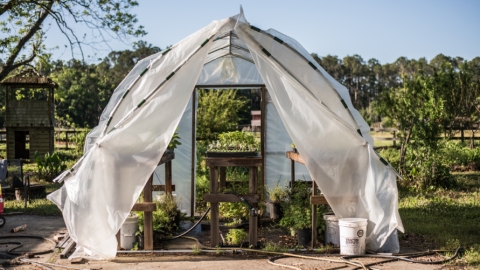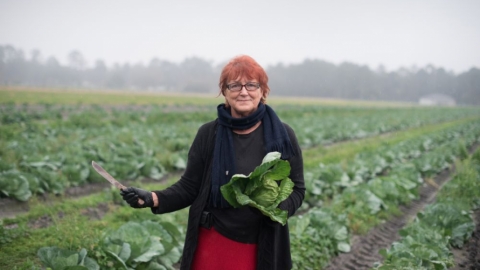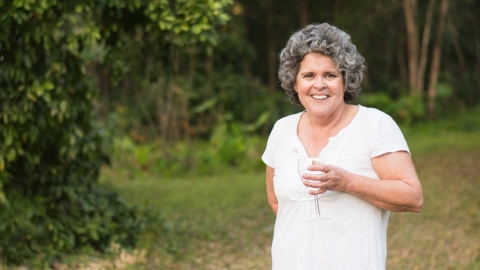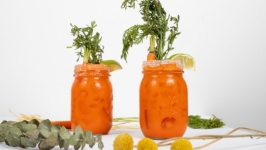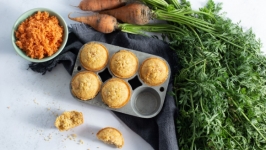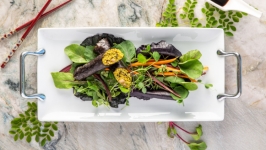On the Farm with Katie Versaggi
Head west on Highway 207 out of tourist-heavy downtown St. Augustine and within a few minutes the road opens up to fields of potatoes and cabbage, cattle pastures and other agricultural enterprises. Turn down St. Ambrose Church Road, near farmland settled by Minorcan families in the early 1800’s and most days you can find Katie Versaggi and her husband Joey at Bee Hill Farm, engaged in one of the many chores needed to bring their crops to local farmers’ markets, restaurants and shops.
“Patience is a critical skill in farming,” says Katie. “It isn't an easy job, but it is so rewarding to grow good food.”
Farming has always been a challenging career to pursue. Currently, farmers older than 65 outnumber those younger than 35 by a margin of six to one, and the average age of American farmers is 58, according to the most recent census. New farmers face significant obstacles as they get started in agriculture: the need for a massive amount of capital, securing financing, finding affordable land and hiring skilled labor, among other challenges. And, once growing is underway, add the vagaries of the weather and low prices for yields to ongoing worries.
With all those impediments, why would anyone, male or female, choose to venture into the fields to make a living? In 2012, the number of women farmers in the United States was 969,672. This was a 2 percent decrease in women farmers since 2007, when the last agriculture census was conducted. According to Katie, it was a decision based on the quality of food she wanted to eat.
“Joey and I got into farming because the food that we were getting was just not that good or fresh. Also, after working in restaurants for many years, seeing how fast the food goes bad because it wasn’t coming from local farms, that influenced the decision to go into growing,” says Katie. “We started on a small scale with herbs and flowers. From two raised beds, year after year, we got a little larger. We got lucky meeting the property owner where we are farming now, on the back 10 acres that we share with another farmer. We’ve been farming since 2013, and on this property about 3 years.”
After getting a degree in education, Katie started teaching at a local school. To support herself, she had a second job at restaurants as a bartender and server. After a few years of coming home from school frustrated that she couldn’t teach the way she wanted to, she quit to work in the food industry. Then as the farm started to take off, she decided she wanted to go into that full-time.
There’s always been some sort of farming in Katie’s family. “Growing up, my grandfather had a plot of land and whenever we would go visit him, we would pick the green beans or the peanuts. My grandmother canned and preserved everything they grew. I have fond memories of my favorite part of dinner – when we would go to the freezer and pick out what vegetable we would eat.”
The farm has evolved since the two started, adding both acreage and products as they learned the intricacies of growing what people like and will buy at the farmers’ market, where they sell the bulk of their produce. “The first year we grew a lot of everything, thinking we could sell it. We quickly realized not everyone liked the same produce we like. And we have to be able to sell what we grow to make a living. The spring and lettuce mixes have been successful,” says Katie. Seeing what grows the fastest is part of their on-the-job learning. Planting 600 feet of broccoli doesn’t necessarily make sense when they can produce lettuce mixes in six weeks, since broccoli takes a lot longer.
Along the way, the couple added bees and honey production. Starting with two hives, they now have close to 35 in multiple locations and beekeeping is almost as big a part of the operation as the greens and other produce. The addition of the hives has worked out well for their growing schedule, with a focus on the farm in the fall and winter and bees in the spring and summer.
The couple recently changed the name of their enterprise to Bee Hill Farm, to better reflect their farm’s identity. “When we first named the farm Local Greens, we liked it but it wasn’t our favorite, though it got the point across. As we started to expand, we wanted a name that defined us more as a farm,” says Katie. Several months ago, her grandma asked Katie if she knew the origins of her maiden name, Beale.
“She told us about a relative who was a beekeeper back in England and people in that area called him Mr. Bee Hill, because his hives were up on a hill. That’s where our name originated. Somewhere along the line it ended up as Beale. As we were considering new names, Bee Hill seemed to fit, especially given the growth in the honey side of our business.”
In addition to honey production, Katie branched into another side venture to take advantage of all the beeswax being generated in the hives. “I was gifted a set of beeswax wrap about 3 or 4 years ago, and I used them all the time in the kitchen to cover everything. Partly because we had so much beeswax, I decided to make the wraps and sell them at the farmers’ market,” says Katie.” There was a lot of trial and error to figure out how to make them, mixing the wax with some pine resin and grapeseed oil so they will last and stand up to cleaning.”
Farmers play a critical role in our food system. They often wear many hats to remain sustainable and constantly face trials and tribulations impacting the results of many months of hard work. Versatility has become second nature to Katie and Joey, as these young farmers continue along this career path, adapting to the known and unknown aspects of a life on the land.
“No matter how prepared you are, you are dependent on the weather. We’ve had hurricanes two years in a row, and then this year was really wet. We haven’t had to irrigate, except in the greenhouse. That’s a blessing, you can’t hate on rain,” says Katie. “But sometimes it’s too much, and our plants grow a little slower. I think people understand but it is frustrating for our customers to have an inconsistent supply from week to week at the farmers’ market. Hopefully we are making them more aware of the growing season, why we might not have lettuce in the summer.”
Despite all the challenges Katie has no regrets about her career direction. The ability to be outdoors doing something she enjoys is one of the most rewarding parts of her job.
“Seeing our apiary and farm growing each year, providing healthy food for ourselves and our customers – that’s what keeps us going, even through the tough times.”
Pick up freshly harvested produce, beeswax wraps and honey from Katie and Joey of Bee Hill Farm at the St. Augustine Amphitheatre Farmers' Market every Saturday.


